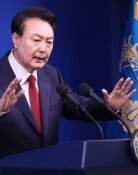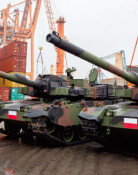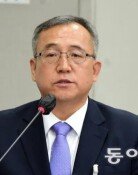[Editorial] A Warning About Financial Crisis Restoration Expenses of $130 billion
[Editorial] A Warning About Financial Crisis Restoration Expenses of $130 billion
Posted April. 04, 2005 23:36,
The investment profit made by foreign investors from the Korean stock market over the past seven years since 1998, just after the financial crisis, to 2004 is estimated at $132.2 billion (133 trillion won with the current exchange rate). This surpasses Koreas current account balance surplus for the same period by $130.1 billion. Before we turn a green eye to the foreigners profit, which comes out to an annual average of 41 percent, we should consider the background of how such a situation came to be.
Looking back, domestic investors were in such a panic that they did not have the leisure to invest in stocks during the financial crisis. On the other hand, however, foreign investors, armed with advanced investment techniques, penetrated the Korean stock market with an enormous amount of money. In the end, their investments made a considerable contribution to Koreas recovery from the crisis. In other words, it is like we paid a fee of $130 billion for seven years to foreigners for damage control and economic restoration from the aftermath of the crisis.
We must review the domestic factors that brought about the crisis and check whether or not a similar political or economic situation is being reproduced right now within the country. Just before the financial crisis, our government was busy acting like an advanced nation while being caught up in the illusion of breaking the $10,000 per capita income level that was brought on much earlier by the strong won that was traded around 800 won per dollar. The government pressed for the OECD membership, a membership for a club of rich nations, and implemented the floating exchange rate system much too soon.
While dominating the financial sector, the authorities did not see how fragile the fate of a small-scale open economy was in the face of the power of global capital until it had welcomed in the financial crisis with its own management plans for foreign exchange that were brash and blind. A large chunk of the investment profit taken by the foreigners was our penalty for that bravado.
Todays Korean economy is facing other structural problems, ranging from the credit problems of the private sector and shrinking corporate investment to all of the warning signs against being lodged in a low-growth structure. Even in such a situation, the core members of the political authorities would not cease their demonstrations about how they have the power to declare diplomatic and security independence, as though they are still engrossed in the illusion of the miraculous growth of the developmental period.
At the time of the financial crisis, the logic of security put out by the United States State and Defense departments played a larger role than the economic logic brought to our attention by the Department of Finance in administering emergency relief to the Korean economy. Right at this moment, though, as we witness the tittering alliance of Korea and the U.S., we cannot help but wonder whether our economy will be sound without the logic of security, and how big an impact the diplomatic force from the United States will have on our economy.
Headline News
- Korean president faces debate limitations unlike U.S. counterpart
- KEPCO's first quarter profits failed to meet market expectations
- Teenagers are left out of discussions about national pension
- 2 consultative bodies submit minutes regarding increasing number of medical students
- Woo Sang-hyuk's rivalry and friendship transcend borders







